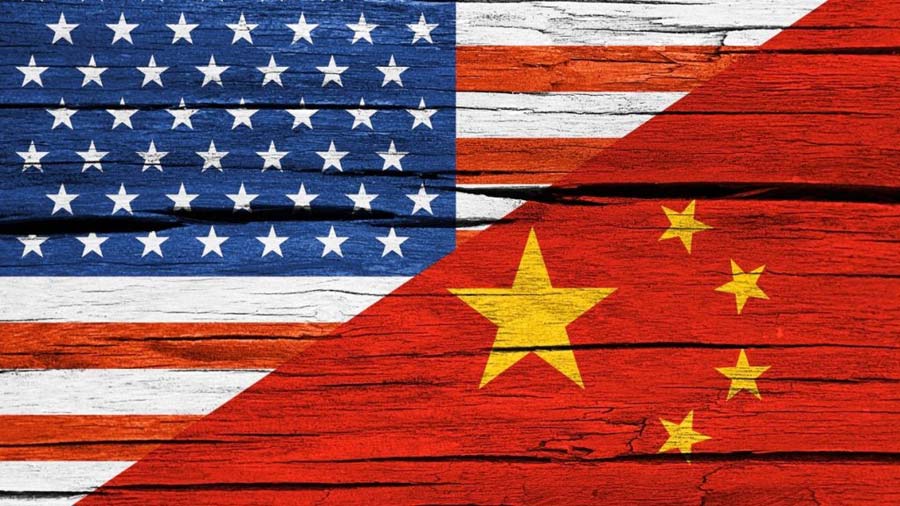U.S. venture investors had already pulled back from China before President Joe Biden on Wednesday signed an executive order aimed at curbing American investment in sensitive technologies developed by its biggest global rival.
At the same time, China-based investors have kept their investment pace in the country steady since 2021.
That’s according to Crunchbase data, which shows U.S. startup investors are on pace to make only about half as many investments into Chinese companies as they did in 2022, which was already down significantly from 2021.
The most active U.S. startup investor in China since 2021 is GGV Capital, according to Crunchbase. The Menlo Park, California-based firm has participated in 75 investment deals since 2021, leading 28 of them. But only four of those deals have been this year.
The firm has invested in Chinese ride-hailing unicorn Didi, electric-vehicle maker Xpeng Motors, and data analysis company Sensors Data, among its hundreds of investments in Chinese companies.
The second-most active U.S.-based startup investor in China since 2021 is GSR Ventures, an early-stage investor focused on AI-related companies. The Palo Alto-based firm has participated in 36 funding deals since 2021, leading 10 of them. This year so far, it’s been involved in only three deals, none of which it’s led.
Numerous large Chinese startups have benefited from American capital in recent years. Most prominent among them are TikTok owner ByteDance. U.S. firms including General Atlantic, Kohlberg Kravis Roberts and Sequoia Capital have led investments in the company in recent years, Crunchbase data shows.
‘Fundamentally rethinking’ China strategy
Biden’s order prohibits or restricts U.S. firms from investing in Chinese entities working on three sectors that carry potential national security risks: quantum computing, semiconductors and microelectronics, as well as some AI systems.
In a letter to Congress, the president said he is taking emergency action to protect American interests “in sensitive technologies and products critical to the military, intelligence, surveillance or cyber-enabled capabilities.”
Search less. Close more.
Grow your revenue with all-in-one prospecting solutions powered by the leader in private-company data.
Experts who watch U.S.-China relations closely say the order, which applies to venture investors and other private equity, will add to the growing unease American firms have with putting capital into the world’s second-largest economy.
Andrew Polk, a partner with the boutique research firm Trivium TAE, told The Wall Street Journal that the American companies he works with are becoming more reluctant to do business with the Red Dragon.
“What we always say—and this resonates with our clients—is that the risk-adjusted return in China has changed dramatically,” Polk told the Journal. “So what we see is a lot of companies fundamentally rethinking their China strategies. It doesn’t mean they’ll necessarily change them, but they’re stress testing them now, because we’re clearly in a new environment.”
Chinese investment stabilizes
Venture funding to startups in Asia fell 50% in the first half of the year, Crunchbase data shows.
However, the decline was led by significant drops in funding to India and Israel, while China actually stabilized. In fact, quarterly funding to Chinese startups in the second quarter of 2023 was $11.2 billion — higher than both Q1 2023 and Q2 2022.
American venture activity in China already ranks a distant second compared to domestic investment, Crunchbase data shows. Since 2018, China-based investors have done more than 25,000 startup deals in the country. That doesn’t include Hong Kong-based investors, who did another 1,228.
U.S.-based investors, for comparison, participated in fewer than 2,000 deals in that time. U.S. investors did 293 startup deals in China last year — the lowest annual count since at least 2018, Crunchbase data shows.
This year is on pace to mark the slowest pace of U.S. venture investment in China in at least five years, with only 94 deals recorded as of early August.
China-based investors, meanwhile, may be on pace to exceed their deal totals from last year. Those investors have already made more than 2,800 investments into their domestic startups so far this year.
Related Reading:
- Asia Startup Funding In First Half Of 2023 Falls 50% As Late Stage Continues Decline
- India, Israel Lead The Way In Asian Venture Market Drop

Stay up to date with recent funding rounds, acquisitions, and more with the Crunchbase Daily.


![Illustration of a guy watering plants with a blocked hose - Global [Dom Guzman]](https://news.crunchbase.com/wp-content/uploads/quarterly-global-3-300x168.jpg)
67.1K Followers